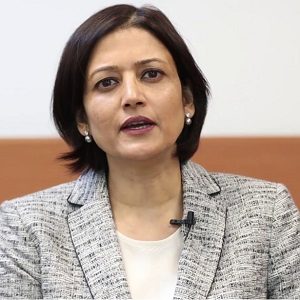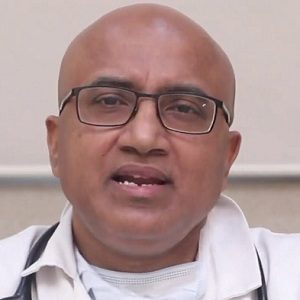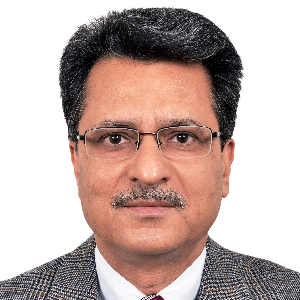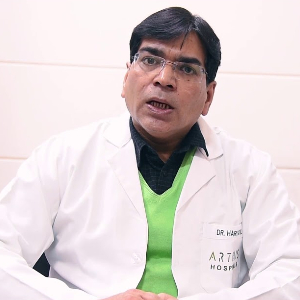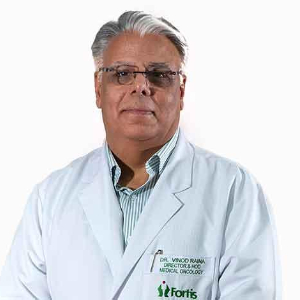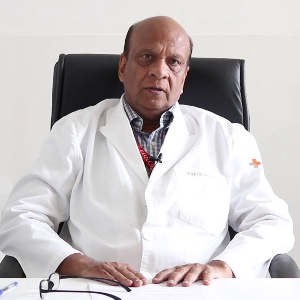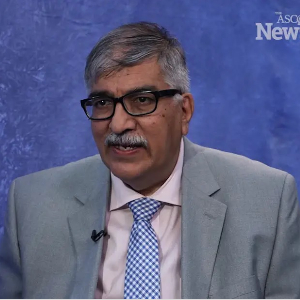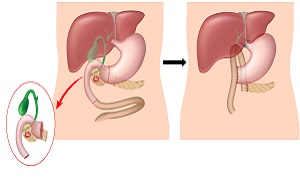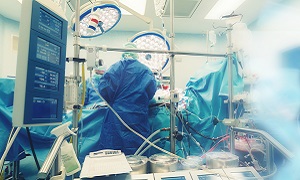Best Pancreatic Cancer Treatment Doctors in India
- Surgical Oncologist, New Delhi, India
- Over 32 years’ experience
Profile Highlights:
- Dr. Shefali Agrawal is one of the best surgical oncologists in India, with more than 32 years of experience in the field.
- Dr. Agrawal is practicing as a Senior Consultant Surgical Oncologist at Indraprastha Apollo Hospital, New Delhi.
- The doctor took several certified training in surgical oncology in the USA.
- Dr. Agarwal specializes in Hepato-Pancreato-Biliary Cancer. She also finds her interest in Medical Oncology, management of Cervical Cancer, Phyaryngeal Cancer, Brain Cancer, Bone Cancer, Colo-rectal Cancer, Ovarian Cancer, Bladder Cancer, and Fallopian Tube Cancer.
- Dr. Agarwal has published several articles and papers in esteemed national and international journals.
- Medical Oncologist, New Delhi, India
- Over 15 years experience
Profile Highlights:
- Dr. Dipanjan Panda is one of the well-known medical oncologists in India, having 15 years of expertise in treating bone and soft tissue cancers and gastrointestinal cancers.
- He is credited with starting the country’s first anticancer departments and PDCC program. Dr. Panda developed a medical oncology unit at Indraprastha Apollo Hospital in New Delhi, in association with the Institute of Liver and Biliary Sciences. He is currently working at Indraprastha Apollo Hospital in New Delhi as a Senior Consultant, Medical Oncology.
- Dr. Panda has written twenty peer-reviewed papers in national and international journals. He has presented numerous talks at global forums.
- Medical Oncologist, New Delhi, India
- Over 20 years’ experience
Profile Highlights:
- Dr. Amit Agarwal is a highly successful Medical Oncologist whose primary focus lies on pain management in cancer patients and provides treatment specifically for the management of early stages of Hodgkin’s disease and Non-Hodgkin Lymphoma, Non-Metastatic Ewing’s Sarcoma, Cardiopulmonary Resuscitation, and emergency medications for cancer patients.
- Dr. Agarwal has been part of other prestigious cancer hospitals where he has helped in the treatment of patients with various types and rare cases of cancer.
- Medical Oncologist, Gurugram, India
- Over 30 years’ experience
Profile Highlights:
- Dr. Ashok Kumar Vaid is a reputed Medical Oncologist in India with expertise in the treatment of blood, lungs, skin, breast, and gastrointestinal cancers.
- He is famously known for performing among the first 25 bone marrow transplants in a private hospital in India.
- Dr. Ashok Vaid’s primary area of focus lies in Leukemia, Lymphoma, Solid tumors, and the treatment of organ-specific benign and malignant tumors.
- He prefers to treat his patients using non-surgical and pain-free techniques that include hormone therapy, biological therapy, targeted therapy, and chemotherapy.
- Hematologist and Medical Oncologist, Gurugram, India
- Over 30 years’ experience
Profile Highlights:
- Dr. Hari Goyal is the head of the Oncology unit comprising some of the finest oncologists in the country. The team effort gives an edge & advantage to the patients’ management.
- His contribution to oncology is immense & has developed drugs for the management of chemotherapy side effects. This development has helped millions of cancer patients since 2004.
- Dr. Hari Goyal was a part of a large number of clinical trials of cancer research including one of the FDA audited trials.
- Medical Oncologist, Gurugram, India
- Over 38 years’ experience
Profile Highlights:
- Dr. Vinod Raina is among the top and renowned Medical Oncologists in India with more than 38 years of extensive experience in the field.
- His primary expertise lies in Chemotherapy and is the first to perform high-dose chemotherapy in India. He also performed the first peripheral blood stem cell transplant in India.
- He has performed more than 250 bone marrow transplants and over 70 allotransplants for different types of cancers.
- Surgical Oncologist (Breast Surgeon), Gurugram, India
- Over 40 years’ experience
Profile Highlights:
- Dr. Rajeev Agarwal is among the very first surgical oncologists in the country with a specialization in breast surgery.
- He performs all kinds of breast surgery – primary breast-conserving and reconstruction surgery for breast cancer. He also specializes in sentinel node biopsies.
- He played a pioneering role in the introduction of organ-based oncology specialization in the Northern part of India.
- Medical Oncologist, New Delhi, India
- Over 20 years experience
Profile Highlights:
- Dr. Manish Singhal is a renowned Medical Oncologist from India practicing the best cancer treatment for over 20 years.
- He is a gold medalist doctor who received specialized training in hematopoietic stem cell transplantation from world-renowned BMT specialists.
- Dr. Singhal is specifically interested in gastrointestinal cancer, GU, breast cancer, leukemia, and lung cancer. He excels in all modalities of chemotherapy, immunotherapy, and the management of oncological emergencies, along with patient medical care.
- Liver Transplant Surgeon and HPB Surgeon, New Delhi, India
- Over 20 years’ experience
Profile Highlights:
- With over 20 years of experience in performing complex operations for cancer, and other diseases involving the pancreas, liver, and gall bladder, Dr. Anupam Saha has been the foremost gastro intestinal and Hepato-Pancreato-biliary surgeon of the Indian Armed Forces.
- He did a 1-year fellowship in Liver Transplantation as well, at King’s College Hospital, London.
- For his service, Dr. Anupam Saha has also been awarded the Vishist Sewa Medal by the Armed Forces.
- Director and Head Medical Oncology/Hematology, Gurugram, India
- Over 40 years’ experience
Profile Highlights:
- Dr. Rakesh Chopra is a well-known Medical Oncologist with national and international repute as one of the best in the treatment of all types of blood cancers including leukemia, lymphoma, multiple myeloma, and bone marrow transplant.
- His specialization lies in blood cancer and also provides treatment for solid cancers of the breasts, lungs, prostate, colon, and GI.
Best Pancreatic Cancer Treatment Hospitals in India
CARE Hospitals, Hyderabad
- City: Hyderabad, India
Hospital Highlights:
- CARE Hospitals were established in the year 2000, by CARE Group.
- The multispecialty hospital has 435 beds, including 120 critical care beds, with an annual inflow of 180000 outpatients and 16,000 in-patients.
- The hospital provides specialty medical services in Cardiology, Cardiothoracic Surgery, Pediatric Cardiology, Pediatric Cardiothoracic Surgery, Neurology, Neurosurgery, Nephrology, and Urology.
- The hospital has the first dual source, 128 slice CT scanner (for high precision cardiac imaging) – the first of its kind in south India.
- The hospital offers a wide range of accommodation facilities for the convenience of its varied patient base, ranging from general wards to super deluxe rooms.
Fortis Hiranandani Hospital, Mumbai
- City: Mumbai, India
Hospital Highlights:
- Fortis Hiranandani hospital was established in 2007.
- The hospital is an advanced tertiary care, multi-specialty hospital equipped with 149 beds.
- The hospital is equipped with a super ICU to provide emergency medical care to critically ill patients.
- The hospital is NABH accredited.
- The critical care facility in the hospital is augmented with the state-of-the-art facilities that facilitate speedier diagnosis and efficient monitoring.
- The hospital provides specialty medical services in cardiology, orthopedic science, pediatric science, neurology, diabetic care, urology, nephrology, ENT, obstetrics, gynecology, cosmetic surgery, bariatric surgery, neuro and spine care.
Fortis Hospital, Anandpur, Kolkata
- City: Kolkata, India
Hospital Highlights:
- Fortis Hospital, Anandapur, Kolkata is a world-class super-speciality equipped with the latest technologies in the medical world.
- The hospital is NABH accredited.
- This state-of-the-art facility specializes in cardiology and cardiac surgery, urology, nephrology, neurosciences, orthopaedics, digestive care, emergency care and critical care.
- The hospital, governed by integrated Building Management System (IBMS), has a pneumatic chute system, for quick vertical and horizontal transportation between floors, facilitating speedy transfer of patient specimens, documents, reports, and medicines to the concerned departments.
- The hospital also has a nephrology department with over 28 advanced dialysis units.
Fortis Hospital Banerghatta, Bengaluru
- City: Bengaluru, India
Hospital Highlights:
- Fortis Hospital Bannerghatta, Bengaluru was established in 2006.
- The hospital is a 276 bedded multi-specialty tertiary care facility.
- The hospital specializes in cutting-edge medical technology and dedicated patient care services.
- The hospital is equipped with state-of-the-art technologies like trans-radial angioplasty, trans-abdominal cardiac surgery, and computerized TKR navigation surgery.
- The hospital provides specialty medical services in cardiology, cardiac surgery, orthopedics, neurology, neuro-surgery, GI, and Minimal Access Surgery (MAS).
Gleneagles Global Hospital, Parel, Mumbai
- City: Mumbai, India
Hospital Highlights:
- Gleneagles Global Hospital The 450-bed facility comprises of 17-stories, housing state-of-the-art infrastructure, and advanced medical care facilities.
- The hospital offers end-to-end clinical, surgical, and diagnostic services. It is equipped with a team of eminent medical professionals aided by qualified nurses and medical staff
- The Hospital offers advanced Endoscopic procedures, Hepatobiliary and Liver Surgeries, Surgical and Medical Gastroenterology, Bariatric Surgery, and Robotic surgery.
- The hospital is a center of excellence for Orthopedics, Joint Replacement, Knee Replacement, and Hip Replacement surgery.
Jaypee Hospital, Noida
- City: Noida, India
Hospital Highlights:
- Jaypee Hospital is the flagship hospital of the Jaypee Group.
- This hospital has commissioned 525 beds in the first phase and has been planned and designed as a 1200 bedded multi-specialty facility.
- It holds the accreditation of the NABH and NABL.
- The hospital has state-of-the-art infrastructure equipped with the latest technologies and modern equipment like 64 Slice PET CT, Dual Head 6 Slice SPECT CT, Gamma Camera, and Da Vinci Robotic Surgery for comprehensive robotic surgical solutions.
- It has special Centers dedicated to the major specialties to provide hassle-free and high-quality clinical care.
Manipal Hospital, Dwarka, Delhi
- City: New Delhi, India
Hospital Highlights:
- Manipal Hospitals, Dwarka, is a super-specialty hospital in Dwarka, New Delhi, which is a part of Manipal Hospitals Group.
- The hospital aims to provide the best treatment on par with international standards at a fraction of the cost.
- Equipped with 380 beds, the hospital is also one of the new age hospitals which are equipped fully with state-of-the-art infrastructure, cutting-edge technology as well as the latest and advanced clinical practices. The hospital also has 13 modular Operation theatres with 118 beds which are solely meant for critical care.
- The hospital comprises internationally acclaimed doctors and highly professional and experienced hospital and medical staff who are able to provide preventive, therapeutic, and diagnostic services all under one roof.
Pushpawati Singhania Hospital & Research Institute, New Delhi
- City: New Delhi, India
Hospital Highlights:
- Established in 1996, Pushpawati Singhania Research Institute is one of the top hospitals in the NCR region, as well as one of the top facilities in India for gastroenterology. The hospital is one of South Asia’s first institutes in medical and surgical treatment for diseases related to digestion.
- The hospital is equipped with state-of-the art facilities coupled with the latest equipment as well as renowned consultants from various parts of India as well as other parts of the world.
W Pratiksha Hospital, Gurgaon
- City: Gurugram, India
Hospital Highlights:
- W Pratiksha Hospital, Gurugram, is one of the best hospitals in the NCR region. It is also a top hospital in India for IVF. Since its inception, the hospital has performed over 5500 successful IVFs. The hospital also specializes in gynecology.
- With over 20 years of experience in providing quality healthcare, the hospital is known as one of the most trusted and valued health providers in India.
- Equipped with world-class medical facilities and advanced technology, the hospital’s doctors and clinicians also have a track record of delivering excellent results. The hospital is also known for focusing on preventive well-being as much as on curative treatment.
- The hospital has earned the trust of its patients, by providing the best available treatments at affordable costs.
Narayana Superspeciality Hospital, Gurugram
- City: Gurugram, India
Hospital Highlights:
- Situated near DLF Cyber City, Gurugram, Narayana Superspecialty Hospital is one of the top medical facilities in the Delhi NCR region, catering to the needs of the people. Known for its commitment to quality medical care and patient service, the hospital is a state-of-the-art facility with planned and well-equipped sections, which includes a spacious OPD area as well as comfortable patient rooms.
- It is the closest super-specialty hospital from Indira Gandhi International Airport towards Gurugram, and also the nearest super specialty hospital from DLF Cyber City. It is also close to major residential areas in Gurugram.
- It is part of the renowned Narayana Health Group. Established in 2000, by Dr. Devi Shetty, a renowned cardiac surgeon, it has grown to be one fo India’s leading healthcare groups.
Pancreatic Cancer
Pancreatic Cancer is the cancer that begins in the tissues of the pancreas.
Pancreas is the organ that lies behind the lower part of the stomach. The main function of pancreas is that it releases enzymes that help in digestion & hormones that manages the blood sugar level.
Pancreatic cancer is hardly ever detected in early stages since it shows no symptom in early stages. It gets noticed when it has already spread to other organs (4th or 5th stage), thereby making treatment quite difficult.
Signs & symptoms of Pancreatic Cancer
- Fatigue
- Loss of appetite
- Jaundice
- Pain in the upper abdomen.
- Back pain
- Nausea & vomiting
- Malaise, feeling of discomfort or unease whose exact cause is not known.
Causes & risk factor of Pancreatic Cancer
- Smoking
- Diabetes
- Family history of pancreatic cancer.
- Pancreatitis (swelling of pancreas)
- Ulcer in the stomach
- Alcohol consumption
- Obesity
- Pancreatic cancer is more common in older people
Types of Pancreatic Cancer
There are two major types of Pancreatic Cancer:
- Exocrine Pancreatic Cancer- It is the cancer that begins in the exocrine cells, cells that produces pancreatic digestive juices. Exocrine Pancreatic Cancers make up for about 95% of Pancreatic Cancers. The sub-types of Exocrine Pancreatic Cancer are:
- Adenocarcinomas- These begin in the cells that line the ducts of the pancreas & are the most common type of exocrine pancreatic cancer, accounting for around 90% of Pancreatic cancers.
- Squamous Cell Carcinoma (rare type)
- Adenoquamous Carcinoma (rare type)
- Colloid Carcinoma (rare type)
- Endocrine Pancreatic Cancer- These begin in that part of pancreas where Insulin and other hormones are made and released directly into the blood. Endocrine Pancreatic Cancers are named after the hormone they produce like gastrinomas produce a gastrin & insulinomas produce insulin to name a few. They make up for less than 5% of Pancreatic Cancers.
*Benign cysts and lesions in Pancreas- These can be precancerous formations and are generally removed once noticed, or closely monitored for malignancy.
Stages of Pancreatic Cancer
- Stage 1: Cancer is limited to the pancreas.
- Stage 2: Cancer is confined to the pancreas but the tumour has grown in size (greater than 2 but no more than 4 centimeters).
- Stage 3: The tumour is over 4 centimeters in size and the cancer may have spread to nearby lymph nodes.
- Stage 4: The cancer has spread to the nearby blood vessels or nerves.
- Stage 5: Cancer has spread to distant organs.
Diagnosis of Pancreatic Cancer
- Blood Test
- PET scan- It helps to check the degree of pancreatic cancer spread
- Endoscopic Ultrasound
- MRI
- Biopsy- Tissue sample from the suspicious area is taken & send for examination. Biopsy can be performed in the following way:
- Percutaneous needle biopsy also known as fine needle aspiration (FNA)- A needle is inserted into the mass & some tissue is captured.
- Endoscopic retrograde cholangiopancreatography (ERCP)- In this process a flexible tube with a camera and other tools on its end (endoscope) is put through the mouth to the small intestine, near the pancreas. & helps to collect images as well as tissue sample of the affected area.
Treatment of Pancreatic Cancer
The Treatment of Pancreatic Cancer depends on the stage and grade of cancer. After evaluation of the aforesaid through proper investigations, your oncology team will decide on your treatment plan or protocol. Following are the options considered for effective Pancreatic Cancer Treatment.
Surgery
There are quite a few different types of surgery that are done for Pancreatic Cancer depending on the size of the tumor and organs involved.
Whipple Procedure
It is also known as pancreaticoduodenectomy. In this procedure, the head of the pancreas, the first part of the small intestine (duodenum), the gallbladder and the bile duct and nearby lymph nodes are removed. In some situations, part of the stomach and colon can be removed. The surgeon that reconnects the remaining parts of pancreas, stomach and small intestine to enable digestion of food.
Distal Pancreatectomy
Total Pancreatectomy
The entire pancreas and the spleen are removed. You can actually lead a normal life after Pancreatectomy. However, you will need lifelong insulin and enzyme replacement as these are the functions of the pancreas.
Chemotherapy
Chemotherapy is the use of anti-cancer drug that helps to slow or stop the growth of rapidly dividing cells that cause cancer. It prevents the growth of rapidly dividing cells by killing the dividing cells.
Despite its side effects, chemo is still the most widely used cancer treatment option. Unlike radiation and surgery which treats cancer cells at particular locations, chemotherapy drugs can kill cancer cells that have metastated (spread) to different organs in the body.
Targeted drug therapy
Targeted therapy is a type of cancer treatment that uses cancer drugs. However, it is different from traditional chemotherapy, which also uses drugs to kill cancer cells. In Targeted therapy, the cancer’s specific genes, proteins, or the tissue environment that contributes to cancer growth and survival are targeted. Targeted therapy is generally used with chemotherapy and other interventions.
Radiation therapy
Radiation Therapy is a kind of cancer treatment that uses high doses of radiation beams to kill cancer cells to shrink the tumors. Radiation kills the cancer cells by destroying the DNA. Cancer cells with damaged DNA fail to multiply and die. They are then removed by the body’s mechanism.

